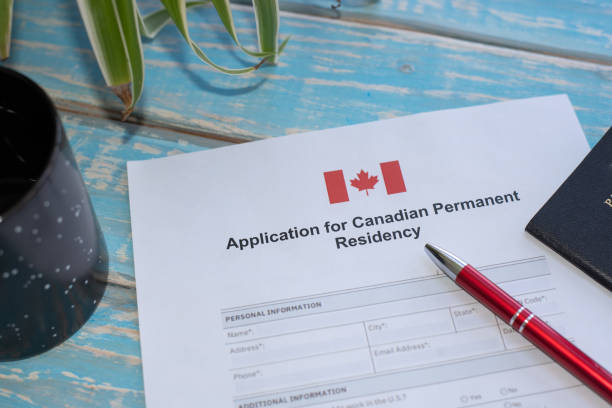
Immigration medical exam requirements 2024
Immigration Medical Exam Requirements for 2024: A Comprehensive Guide
Immigration medical exams are a crucial part of the immigration process, ensuring that applicants do not pose a public health risk to the host country. Here’s a detailed guide on the requirements for immigration medical exams in 2024 for some of the most common immigration destinations.
1. General Overview
The immigration medical exam typically assesses the applicant’s overall health, screening for infectious diseases, mental health conditions, and other health issues that might impact their ability to reside in the host country. The exact requirements and procedures vary by country.
2. Common Components of the Medical Exam
- Medical History Review: Assessment of past medical history, surgeries, hospitalizations, and chronic conditions.
- Physical Examination: General physical check-up, including vital signs, vision, hearing, and overall physical condition.
- Laboratory Tests:
- Blood Tests: Screening for communicable diseases like HIV, syphilis, and sometimes other conditions.
- Urine Tests: Screening for substance abuse and other health conditions.
- Chest X-Ray: To screen for tuberculosis (TB).
- Vaccinations: Verification of vaccination records and administration of required vaccines if necessary.
- Mental Health Evaluation: Assessment for any mental health issues that could impact the individual’s ability to integrate into society.
3. Specific Requirements by Country
3.1. United States
Authority: U.S. Citizenship and Immigration Services (USCIS)
- Designated Civil Surgeons: Must be conducted by a USCIS-designated civil surgeon.
- Form I-693: Completed and sealed by the civil surgeon, submitted with your application.
- Required Vaccinations: Include but are not limited to MMR (measles, mumps, rubella), Varicella (chickenpox), Tdap (tetanus, diphtheria, pertussis), Hepatitis B, Influenza (seasonal), and COVID-19.
- Tuberculosis Screening: Required for applicants aged 2 and older.
- Syphilis Screening: Required for applicants aged 15 and older.
- HIV Screening: Not routinely required but may be conducted.
3.2. Canada
Authority: Immigration, Refugees and Citizenship Canada (IRCC)
- Panel Physicians: Must be conducted by an IRCC-approved panel physician.
- IMM 1017: Medical report form used during the exam.
- Required Vaccinations: No specific list provided by IRCC; however, applicants may need to show proof of vaccinations according to age and health status.
- Tuberculosis Screening: Chest x-ray required for applicants aged 11 and older.
- Syphilis Screening: Required for applicants aged 15 and older.
- HIV Screening: Required for applicants aged 15 and older or if there are risk factors.
3.3. Australia
Authority: Department of Home Affairs
- Panel Physicians: Must be conducted by an approved panel physician.
- Health Examination: Includes Form 26 (Medical Examination) and Form 160 (Radiological Report).
- Required Vaccinations: No specific list; vaccination history may be reviewed.
- Tuberculosis Screening: Chest x-ray required for applicants aged 11 and older.
- Syphilis Screening: Required for applicants aged 15 and older.
- HIV Screening: Required for applicants aged 15 and older.
3.4. United Kingdom
Authority: UK Visas and Immigration (UKVI)
- Tuberculosis Test: Required for applicants from certain countries.
- Panel Physicians: Must be conducted by an approved clinic.
- Vaccinations: Not specifically required for the medical exam but generally recommended according to UK health guidelines.
- Medical History and Physical Exam: Comprehensive assessment by an approved physician.
3.5. New Zealand
Authority: Immigration New Zealand (INZ)
- Panel Physicians: Must be conducted by an approved panel physician.
- Medical Certificate: Includes General Medical Certificate (INZ 1007) and Chest X-ray Certificate (INZ 1096).
- Required Vaccinations: Vaccination history may be reviewed.
- Tuberculosis Screening: Chest x-ray required for applicants aged 11 and older.
- Syphilis Screening: Required for applicants aged 15 and older.
- HIV Screening: Required for applicants aged 15 and older.
4. Preparing for the Medical Exam
4.1. Scheduling the Exam
- Contact Approved Physicians: Schedule your exam with a designated or approved physician according to the country’s requirements.
- Bring Required Documents: Passport, appointment letter, previous medical records, vaccination history, and any relevant medical documents.
4.2. During the Exam
- Be Honest: Provide accurate information about your medical history.
- Follow Instructions: Follow all instructions given by the medical staff during the examination.
4.3. After the Exam
- Receive Results: The physician will provide the results in a sealed envelope to be submitted with your immigration application.
- Follow Up: If additional tests or treatments are required, follow the physician’s instructions promptly.
5. Important Considerations
- Cost: The cost of the medical exam varies by country and provider and is generally borne by the applicant.
- Validity Period: Medical exams are typically valid for a limited period (e.g., 6-12 months). Ensure that your exam remains valid throughout the application process.
- Updates and Changes: Immigration medical exam requirements can change. Always check the latest guidelines from the relevant immigration authority.
Conclusion
The immigration medical exam is a crucial step in the process of obtaining residency in a new country. By understanding the specific requirements and preparing adequately, you can ensure a smooth and successful medical examination. Always consult the latest guidelines from the immigration authorities of your chosen destination and seek professional advice if needed





